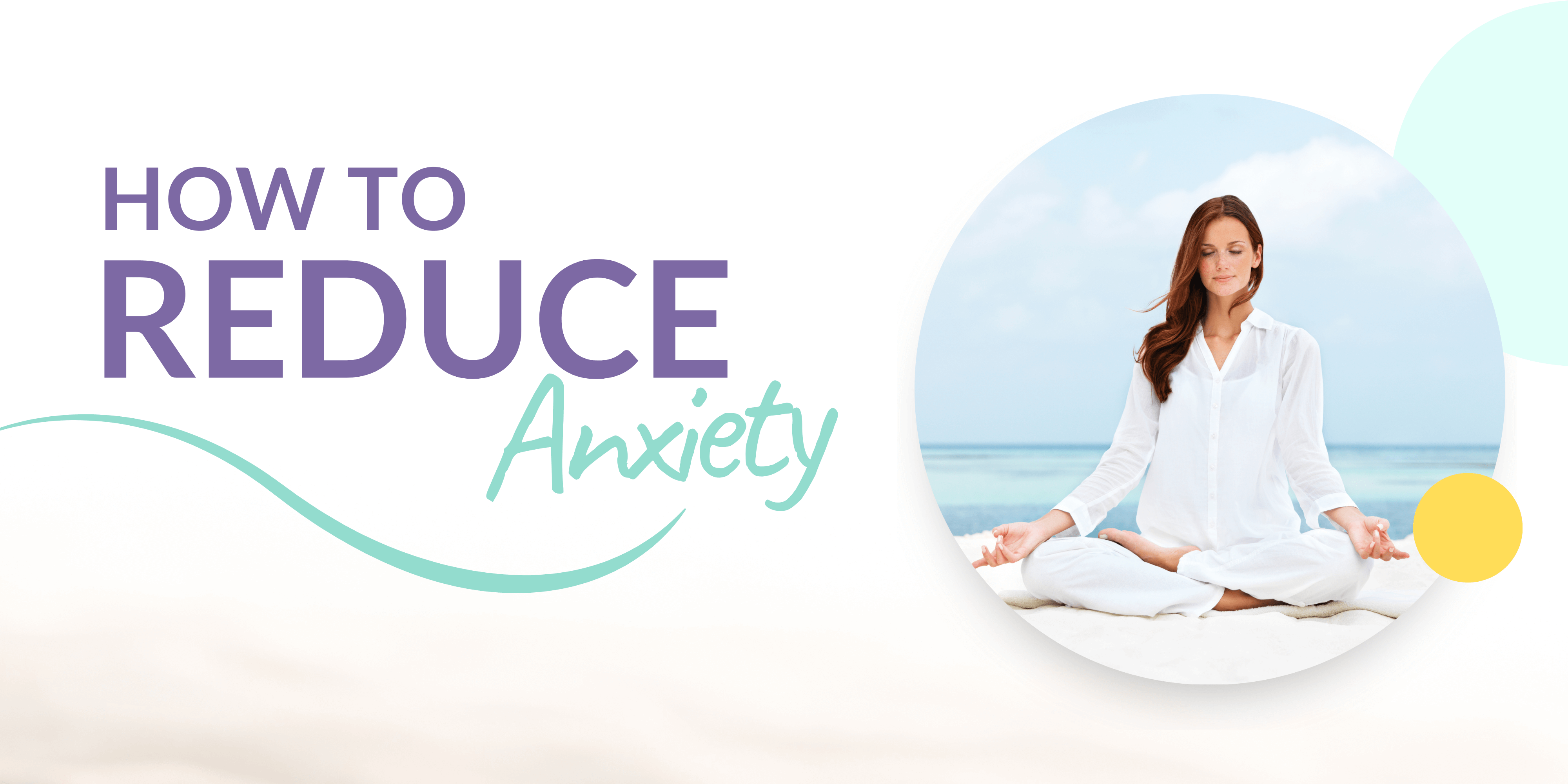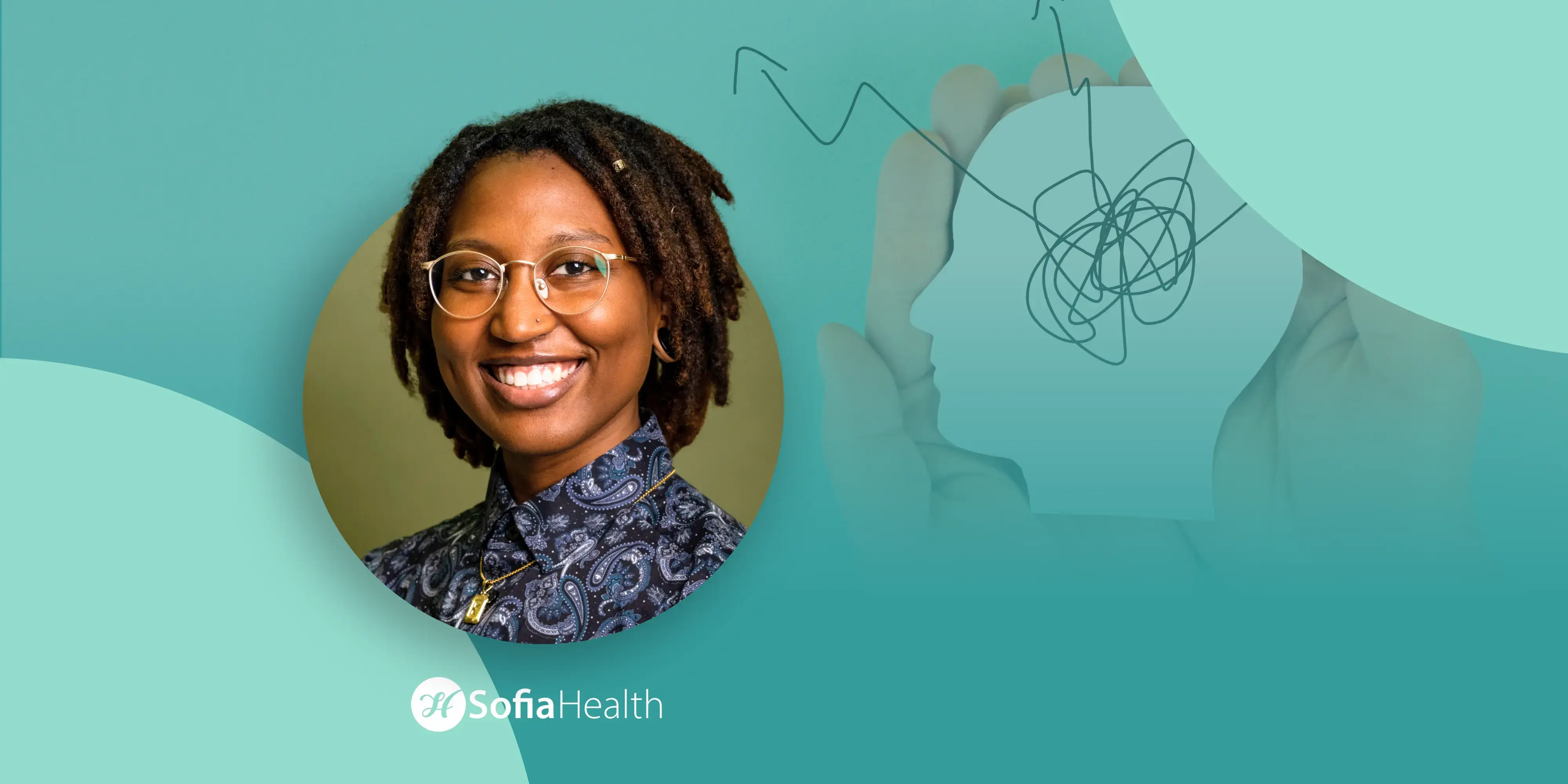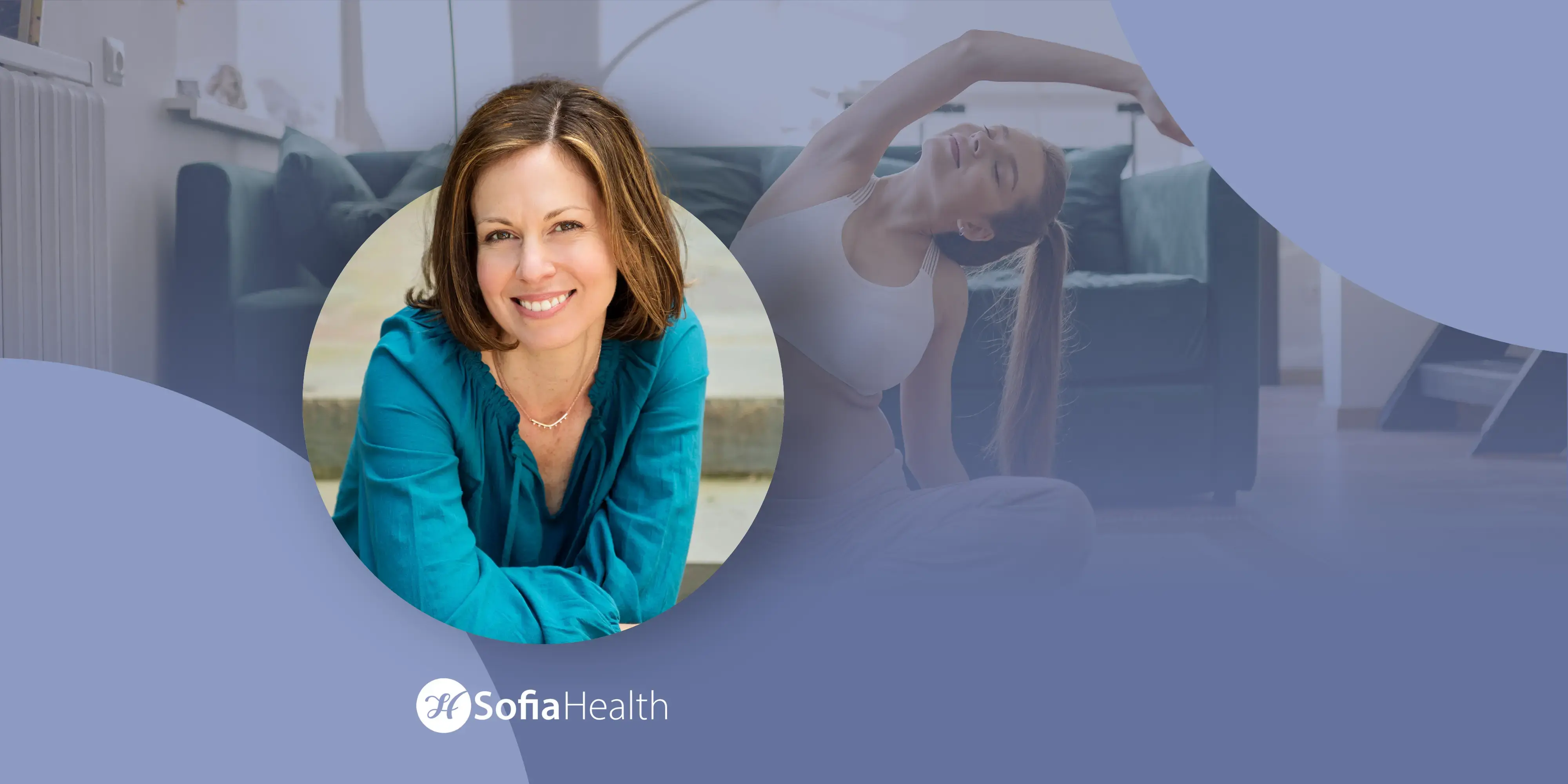For some, anxiety is an occasional, unwelcome visitor. For others, it’s a well-known enemy. For a lot of us, anxiety has even become a way of life, a constant companion that intrudes on our lives and tracks mud on the carpet.
Anxiety can get in your way causing emotional distress or even physical symptoms, leaving you tired or sick. It can also make you feel powerless, but you’re not. You can fight off anxiety attacks and reclaim your energy and focus.
The good news is that no matter what your relationship with anxiety is, you can learn how to reduce it. For those times you feel anxiety coming on fast, we list techniques to help you with immediate relief. To help reduce chronic anxiety, we cover lifestyle changes that can easily be implemented for improved overall well-being.
As with any health regimen, of course, you should consult with your doctor before making major changes or engaging in any practice that could interfere with ongoing treatment.
Table of Contents
How to Reduce Anxiety Naturally: Key Takeaways
-
You can use certain techniques to provide immediate anxiety relief.
-
Lifestyle changes such as better sleep and diet may help lessen anxiety over time.
-
With anti-anxiety classes, meditations, and therapies, you can change your approach to anxiety and overcome related stresses.
7 Tips for Reducing Anxiety Immediately
When you feel anxiety coming on, it’s best to address it quickly. Try these seven tips and experiment to figure out what works best for you. You may prefer a variety or combination of approaches, as the same tactic may not work for all situations.
1. Challenge Your Fears
Sometimes, we let our brains trick us, mistaking the worst possible outcomes for definite futures. One of the best things you can do when you feel anxious is to identify the source of the anxiety. What fear drives the negative thoughts? What do you not want to happen?
When anxiety hits, ask yourself what you really fear in any given situation. Then, ask yourself how likely that outcome is. Is there anything you can do to reduce that likelihood? If so, do it.
There may not be a whole lot you can do, but you’ll still benefit from reminding yourself of better potential outcomes and the things that remain in your control.
2. Use the 333 Rule for Anxiety
Learn how to stop anxiety attacks. They're frightening, and in the midst of one, it can seem as though you’re drowning. It’s important to know how to minimize anxiety even when you feel most out of control.
The 333 rule for anxiety is a common technique that many people find helpful. Take a moment to:
- Identify three things you see around you.
- Name three sounds you can hear.
- Touch or move three parts of your body.
The 333 rule grounds you in your body and environment, interrupting hyperactive, negative thought processes. Give it a try the next time you feel overwhelmed.
3. Do a Breathing Exercise
By focusing on your breath, you can release stress and anxiety. Anxiety can lead to shallow breathing. The reduction in oxygen further stresses your body, making it hard to recover your calm.
Even if you’re breathing regularly, deep breathing exercises help you move past an anxious moment. You can start with this simple one:
- Let yourself get comfortable and tune in to your body, relaxing any areas of tension.
- Slow down your inhalation and exhalation. Try counting in your head — inhaling for four seconds and exhaling for four.
- Monitor the passage of air through your body. Place your hand on your ribcage and feel it expand as your diaphragm fills.
- Start to control your inhalations, breathing in slowly through your nose. Exhale through your mouth, narrowing your lips as if breathing out through a large straw.
- Repeat for five deep breaths.
While more extensive breathwork can be part of your holistic wellness practice, even short sessions are beneficial. Take two minutes just to breathe when you feel pressured. Even when you're busy, you have two minutes to spare!
Start your two-week trial today and discover the difference that dedication and expert help can make.
To learn more about breathwork and breathing exercises, check out our article, 'Breathing Exercises to Reduce Stress'.
4. Put It Into Words
Whether you prefer talking to your best friend or writing in a journal, putting your thoughts into words can help pinpoint exactly what is causing the anxiety. This can make anxiety easier to handle. Similar to challenging your fears, it forces you to identify your worries. You’ll have more success confronting a named fear than a vague composite of half-thoughts and feelings.
Journaling for mental health helps you:
- Prioritize problems and handle them one at a time.
- Keep track of symptoms and triggers so you can modify your behavior.
- Practice positive self-talk and mantras.
While doing this, silence your inner critic. This writing is just for you, and the quality of writing — “good” or “bad” — doesn’t really factor into it. The more you write, the easier it will become to spill your thoughts onto the page. We’re writing to look for the source of anxiety - you have to name it to tame it.
5. Sip Some Herbal Tea
The next time you feel anxious, set that cup of coffee aside and reach for a cup of herbal decaffeinated tea instead. Caffeine aggravates anxiety. Reach for an herbal tea, which has calming properties. Sip on a cup and let the taste and fragrance soothe you. You can consult an aromatherapist in Sofia to help you find the right blend of aromatic herbs that will work best for you.
Chamomile, valerian root, and lavender can also help you drift off to sleep after a rough day. Or, try a tea rich in adaptogens — herbs known to enhance your resistance to stress.
Shop for herbal teas on Sofia.
6. Move
Think of this strategy in two different ways. First, move – as in, change up your position or environment. Sometimes a physical adjustment can disrupt negative trains of thought. Go to a different room, stand up, or adjust your posture. Take a moment to stretch wherever you are.
Second, move – as in exercise. If your schedule allows, go for a walk or take a fitness class. Try to incorporate a daily practice that involves movement. Practicing yoga, for example, has multiple mental benefits as well as physical ones. Exercise helps you shake off your current mood and sets you up for a restful night’s sleep, preparing you to meet the challenges of tomorrow as you let the day’s challenges or worries slip away.
7. Try a Quick Live Class with a Free Trial of Sofia Prime
Sofia offers multiple resources for people with anxiety. Sign up for a free trial of Sofia Prime, and get access to hundreds of live classes each month from vetted providers. Or, you can always book directly with a provider. There is no charge to access the Sofia Marketplace, where you can find thousands of services, products, and providers who can help with your health and wellness needs.
Our classes are designed to be approachable and accomplishable. Find short classes that can be completed at work or any other time you need a quick break. From meditation, health coaching, and yoga to tai chi or qigong sessions, find your favorite classes that will help you reduce anxiety, sleep better, improve your mood, and build resiliency.
Try one of these live meditation and mindfulness classes:
- Sleep Better Meditation.
- Managing Anxiety.
- Let Go of Stress.
- Breathwork for Anxiety.
- Qigong Breathing for Calm.
Each class is offered by one of the expert instructors who belong to the Sofia Prime Wellness Program. Whatever you choose, you're sure to return to your day with a sense of peace and empowerment.
7 Long-Term Strategies to Manage Anxiety Levels
In addition to the quick coping techniques listed above to help intervene during those pesky times you can feel the rise of anxiety, we also created a list of lifestyle changes that will help improve your overall mental health and well-being. You will find that over time, these small changes can have a huge impact on reducing anxiety.
1. Be Kind to Yourself
Everybody feels anxious from time to time. That’s okay. While it's important to learn how to relieve anxiety in healthy ways, it's also crucial to be kind to yourself. Self-compassion helps turn off your body’s threat response, giving the mind and body their best chance of experiencing healing and anxiety relief.
Engage in mindfulness and meditation and direct loving attention to yourself. Try to celebrate your body and be grateful for the unique gifts you possess.
In other words, extend yourself a little of the understanding and care you show your loved ones.
Want an in-depth overview of meditation, check out our article 'What is Meditation'.
2. Maintain a Healthy Diet
If you suffer from chronic anxiety, you may want to consider your diet. A well-balanced, nutritious diet can help stabilize your mood. In addition, there are certain foods known to trigger anxiety.
A. Moderate Caffeine and Alcohol Use
Caffeine elevates your blood pressure and heart rate, mimicking some physical symptoms of anxiety. When your body feels anxious, your mind often follows suit.
Even though alcohol produces the opposite effect, it can be harmful in the long run. While the occasional drink is fine, alcohol depresses the central nervous system. Too much of it eventually compromises your ability to handle stress.
B. Avoid Processed Sugar and Trans Fats
Sugary foods cause blood sugar to spike and crash, a roller coaster that makes you more susceptible to anxiety and depression. Trans fats have also been linked to depression and unstable moods. Aim for a diet rich in whole fruits and vegetables, complex carbohydrates, healthy fats, and lean sources of protein.
3. Get Plenty of Sleep
Sleep is essential to both physical and mental health. Unfortunately, more than half of Americans report regular feelings of sleepiness during the daytime and more than a third report sleeping less than an average of seven hours a night.
Anxiety and sleep deprivation feed into one another. Worries can keep you up at night, and mental agitation makes it harder to stay asleep or sleep restfully. In the other direction, lack of sleep has a proven negative effect on mood and emotional health. As a result, poor sleep makes you more prone to anxiety and less able to handle it well.
Try to get at least seven hours of sleep a night. To help yourself fall asleep, get exercise during the day and give yourself time to wind down at night with an herbal tea or a good book. You should also avoid caffeine and blue-light screens as bedtime approaches.
4. Take Vitamin B Supplements
Vitamin B supplements offer you one natural way to calm down anxiety. Vitamin B6 is a particularly good resource. One study found that participants given 100mg of B6 demonstrated a reduction in anxiety symptoms, suggesting improved functioning of the neurotransmitter involved in calming and relaxing (GABA).
Add a B-vitamin supplement — or a multivitamin that includes a potent B-vitamin complex — to your daily regimen. Take stock of your results after a month. You’ll likely find that you have more energy and less anxiety.
5. Spend Time Outside
Get away from your desk and escape outside. Fresh air and natural beauty can elevate your mood, and open spaces can decrease feelings of being trapped. If you can, leave your work inside and get away from it all for a while.
A little sunlight is also beneficial. Both depression and anxiety increase during the long, gray, winter months as serotonin levels drop. So, put on your sunscreen and grab a few rays when possible. And if you find your anxiety worsening in winter, invest in a good sun lamp to make up for lost vitamin D.
6. Practice Self-Care with Anti-Anxiety Treatments and Classes
Taking care of yourself can mean different things, so pay attention to your current needs. Find a therapist or speak to one of our mental health professionals that specialize in anxiety. They offer a wide range of services. You might:
- Work through anxiety with a wellness and life coach;
- Acquire new coping mechanisms such as Reiki therapy and acupressure.
- Learn about aromatherapy and the best essential oils for anxiety.
- Discuss your diet and potential anxiety triggers with a nutritionist.
Sometimes, there’s no substitute for one-on-one or small-group attention. Other times, you just need a little me-time. Draw yourself a nice bath using bath salts. Schedule a massage. Or, take the time to give yourself a facial, pampering your skin and enjoying some well-earned relaxation.
7. Start the Sofia Prime Wellness Program with Daily Meditation
A low-anxiety life depends on good habits. Use the Sofia Prime Wellness Program for access to daily meditation and training.
You also should check out some of our live classes on how to calm anxiety. They're designed to keep you centered and stress-free.
Let Sofia Health Help You Reduce Your Anxiety
Whether you prefer a subscription over live classes or want to shop for individual services, classes, or products, we have you covered. We’re here to help you meet your wellness goals for physical, mental, emotional, and spiritual health. You can also take advantage of the services offered by one of the providers at the Sofia Marketplace.
Better yet, make a daily dose of wellness part of your routine. Sofia Prime offers both live classes and an extensive on-demand video library. Choose from high-quality offerings in the fields of wellness, nutrition, fitness, and meditation.
To learn more about the benefits of meditation, check out our article, 'Top 10 Science-Based Benefits of Meditation'.
Learn more about meditation








